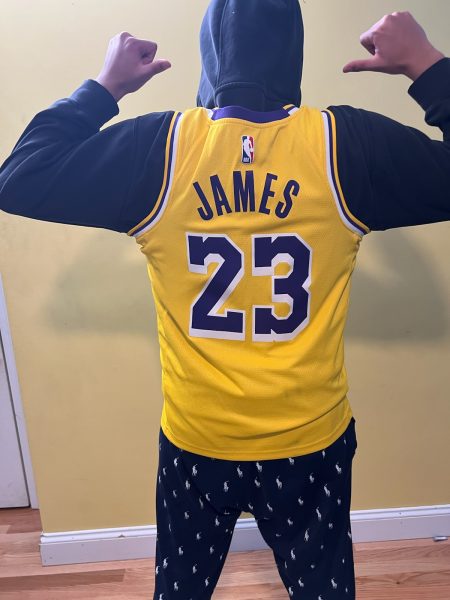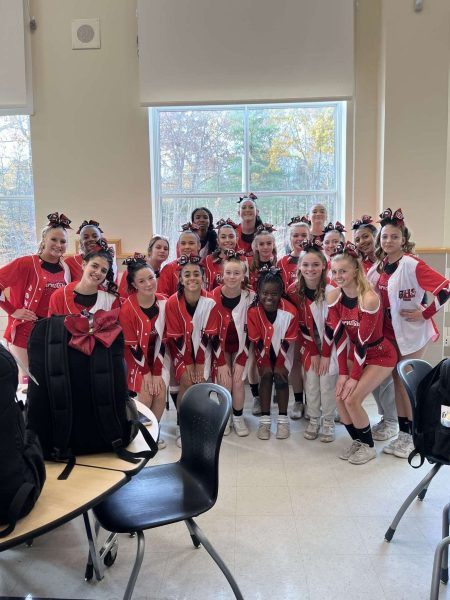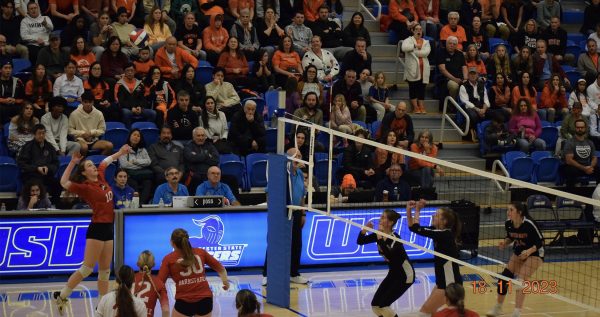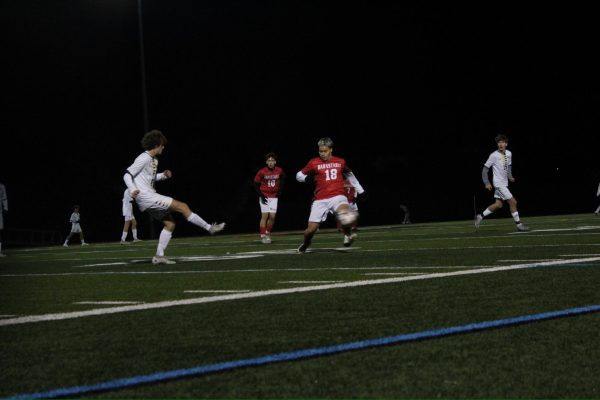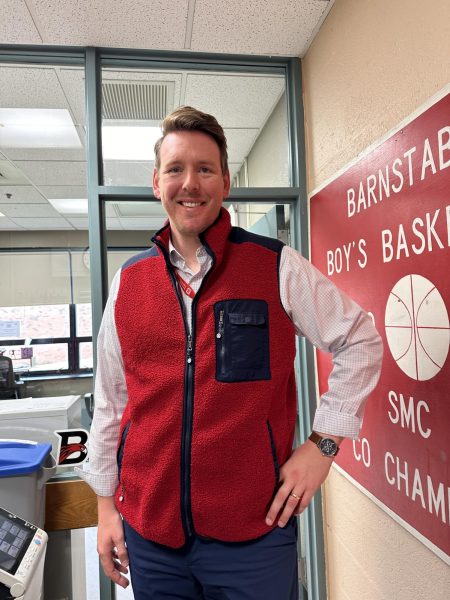NCAA Eligability
December 21, 2016
The term “student-athlete” is something that is said proudly around the halls of Barnstable High School. And if you open the program of studies, you will see hundreds of classes that vary from engineering to cartooning, but for future college athletes that want to pursue division one or two colleges, there are certain restrictions on classes that they must follow in order to be able to play their desired sport in college.
According the NCAA’s, a future college athlete must take 16 core courses: “English 1-4, math 1-3, natural of physical science, social science, and additional: comparative religion or Spanish 1-4. In order to qualify for the division one standards, a student must take four years of English, three of math, two of science, one of an extra math, English, or science, two years of social science, and four of additional core courses.
These requirements impact future college athletes at Barnstable High School. “If high school athletes want to play NCAA D1 or D2, the NCAA can decide on what you can or not take,” said English teacher, Keith Caldwell.
According to the NCAA, like courses that do not satisfy the core class requirements are classes in non-core areas, fine arts or vocations such as driver’s education, typing, art, music, physical education or welding, personal skill classes such as personal finance or consumer education, classes taught below grade level, at a slower pace or with less rigor or depth, and classes that are not academic in nature such as film appreciation, video editing or greenhouse management.
Why is it different for athletes?
Students at Barnstable High School that take college prep one courses (CP1) are not eligible to play NCAA sports in the future. The NCAA recognizes classes taught at the CP1 as “basic, essential, fundamental, or foundational,” as stated on the NCAA website.
Sometimes a student’s schedule aligns with the NCAA requirements. That was the case for future division one student-athlete and BHS senior, Cam Faszewski, who said They[the NCAA requirements] didn’t really affect my class choices. I like how my class choices went, but weren’t influenced by the NCAA.”
Most English, math, science, and social science classes satisfy the core class standard of the NCAA, but some do not. The senior English class, English IV: Drama Theatre Arts, taught by English teacher Keith Caldwell is one of the classes that the NCAA does not accept as credit for a core class. Even though the NCAA does not accept this class as a core credit, English IV: Drama Theatre Arts is accepted as a senior year English credit.
“They’re [NCAA] acting outside their authority-let the academic deans make the academic decisions and leave athletics out of it,” said Keith Caldwell, English IV: Drama Theatre Arts teacher. Caldwell has tried to fight the NCAA on this matter with no avail.
“The NCAA says that it [English IV: Drama Theatre Arts] is preparing students for a certain career, even if so what 90% of athletes become professionals in something else,” said Caldwell, in response to the current NCAA qualifications.
Student-athletes have found some faults in the current NCAA requirements. Faszewski said, “I don’t really think there needs to be requirements for classes so much as grades. So, for example instead of “you have take this class” I think it’d be more effective as “you need a C or better in all your classes.”


